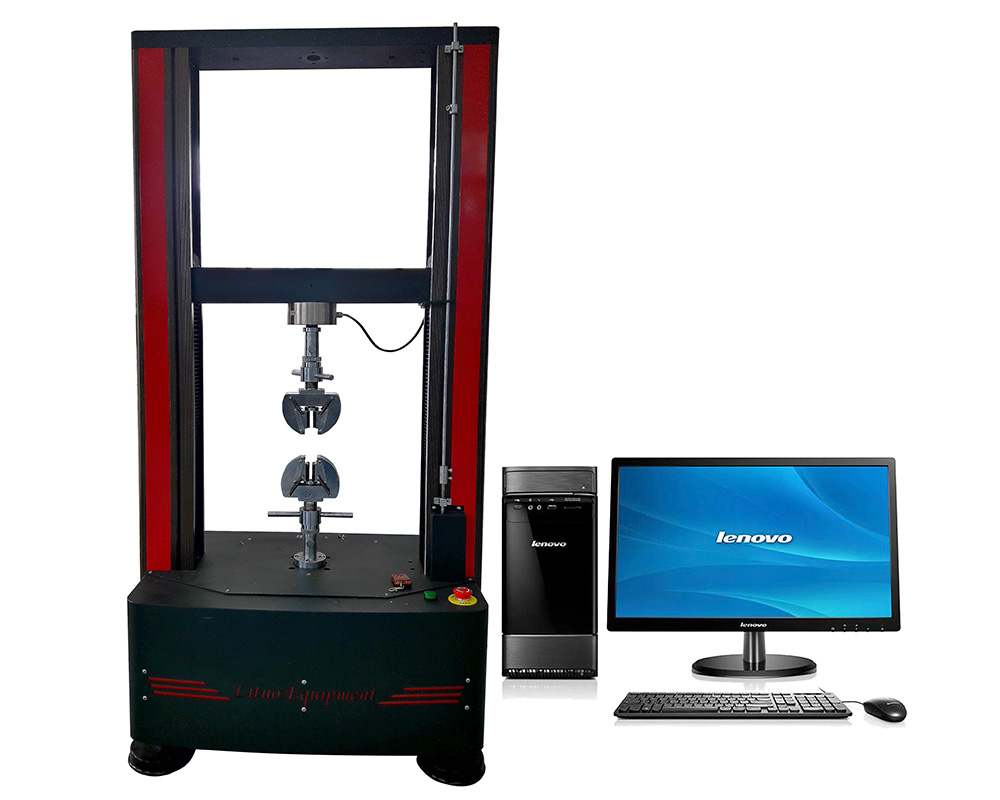The mechanical properties of materials refer to the mechanical characteristics of materials under different environments (temperature, humidity, medium), under various external loads (tensile, compression, bending, torsion, impact, alternating stress, etc.).
The material mechanical properties test includes hardness, strength and elongation, impact toughness, compression, shear, torsion test and so on.
The hardness test refers to Brinell hardness, Rockwell hardness, Vickers hardness, microhardness; The strength test is yield strength and tensile strength. Tensile test based on standards:
Metals: GB/T 228-02, ASTM E 88-08, ISO 6892-2009, JIS Z 2241-98
Non-metal: ASTMD 638-08, GB/T 1040-06, ISO 527-96, ASTMD 5034-09, ASTMD 638-08, GB/T 1040-06, ISO 527-96
Commonly used test equipment is these: material universal testing machine, impact testing machine, fatigue testing machine, Whole Rockwell hardness tester, Vickers hardness tester, Brinell hardness tester, Leeb hardness tester.
Metal mechanical properties testing is an essential means for the development and development of new metal materials, improving material quality, maximizing the potential of the material (selecting the appropriate allowable stress), analyzing the failure of metal parts, ensuring the rational design of metal parts and the safe and reliable use and maintenance of metal properties (see characterization of metal mechanical properties).
Routine test items are: Hardness (Brinell hardness, Rockwell hardness, Leeb hardness, Vickers hardness, etc.), room temperature tensile, high temperature tensile, low temperature tensile, bending, impact (room temperature impact, low temperature impact, high temperature impact) fatigue, cup, drawing and drawing load, cone cup, reaming, compression, shear, torsion, flattening, etc. Fastener mechanical properties test and welded plate (tube) mechanical properties (deformation, fracture, adhesion, creep, fatigue), etc.
Post time: Dec-14-2023










